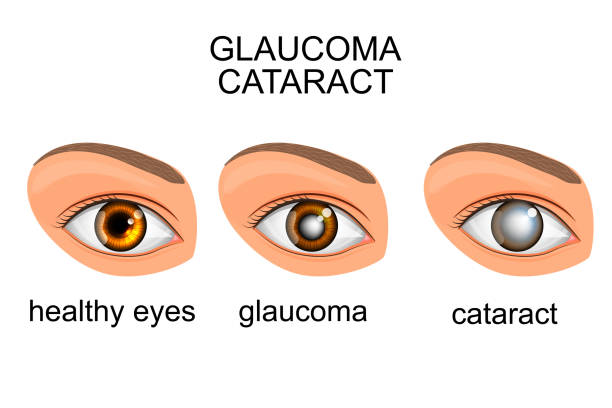Make an Appointment
We have often heard the term “glaucoma” but what is glaucoma? What does it mean? A condition in which the optic nerve of the eye gets damaged is called glaucoma. If not treated at the right moment it gets worse over time. It’s often linked to a build-up of pressure inside your eye. Glaucoma is said to be a hereditary disease, it runs in families. It usually doesn’t happen till the time you get old. The increased pressure in your eye, called intraocular pressure, can damage your optic nerve, which sends images to your brain. If the damage worsens, glaucoma can cause permanent vision loss or even total blindness within a few years.
Glaucoma has no early symptoms or pain. It is advised to visit your eye doctor regularly so that you can diagnose and treat glaucoma before you have long-term vision loss. If you lose vision, it can’t be back. But lowering eye pressure can help you keep the sight you have. People with glaucoma who have treatment plans are advised to have a regular eye exam so that they can keep their vision.
What is glaucoma? How is it caused? The fluid inside your eye, called aqueous humour, usually flows out of your eye through a mesh-like channel. If this channel gets blocked, or the eye is producing too much fluid, the liquid builds up. It is difficult for experts to tell you what causes this blockage. This disease can be inherited.
Less common causes of glaucoma include a blunt or chemical injury to your eye, severe eye infection, blocked blood vessels inside your eye, and inflammatory conditions. It’s rare, but eye surgery to correct another condition can sometimes bring it on. It usually affects both eyes, but it may be worse in one than the other.
Glaucoma is a condition that mostly affects adults over 40, but young adults, children, and even infants can also have it. Your ethnicity matters a lot when it comes to diseases like glaucoma. If have a family history of glaucoma, or if you are nearsighted or farsighted, have poor vision, have diabetes or you have taken certain steroid medications such as prednisone. If you have high blood pressure, heart disease, diabetes, or sickle cell anaemia then that can cause glaucoma.
There are two types of glaucoma called open-angle glaucoma and angle-closure glaucoma. Most people with open-angle glaucoma don’t have symptoms. If symptoms do develop, it’s late in the disease usually a loss of side, or peripheral, vision. Symptoms of angle-closure glaucoma usually come on faster and are more obvious. Seeing halos around lights, vision loss, and redness in your eye, the eye that looks hazy, upset stomach or vomiting and eye pain are some of the main symptoms.
Treatment of glaucoma is possible. Doctors may use prescription eye drops, oral medications, laser surgery, or microsurgery to lower pressure in your eye.
Glaucoma is a lifelong condition and needs continual follow-up with your eye doctor.
There are other things you can do to help keep your eyes healthy. Exercising regularly, having a balanced diet along with lots of green leafy vegetables prevents this condition. Avoid smoking and consuming a lot of caffeine. Wear protective glasses and don’t rub your eyes a lot.

